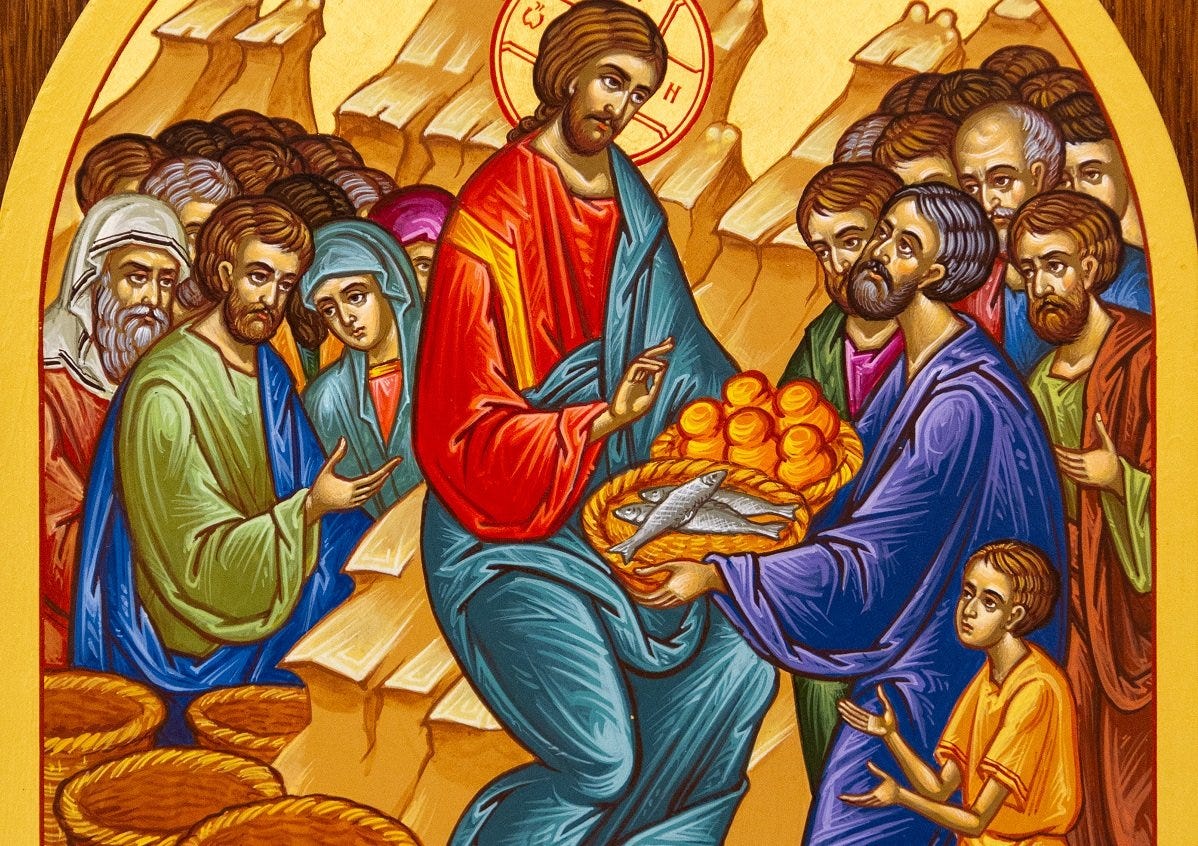Shall We Send Fire?
Power, Responsibility, and the Character of God
Once, when Jesus and His disciples were on their way to Jerusalem, they decided to make a pit stop in the town of Samaria. The townspeople would have gladly received Jesus, but feeling slighted at being treated as just a pit stop, they refused him entry. The Sons of Thunder, James, and John, deeply offended by this, were prepared to restore the honor of their Rabbi.
“Lord, do You want us to command fire to come down from heaven and consume them, just as Elijah did?” (Luke 9:54)
This is a question that most people overlook in our spiritually diminished, disenchanted age—an era increasingly governed by naturalistic ideologies. And I’m referring to the Church, not the world.
“Do you want us to command fire from heaven?”
Do you think they were referring to metaphorical fire? Or maybe they meant giving the Samaritans a vigorous talking-to that would put them in their place. So much so that the Samaritans would walk away saying, “Those two went scorched earth on us!”
Obviously, they were speaking of real fire—just like the one Elijah called down that killed 100 men in 2 Kings 1. Twice, Elijah said, “‘If I am a man of God, let fire come down from heaven and consume you and your fifty.’ Then fire came down from heaven and consumed him and his fifty” (2 Kings 1:10).
While we may struggle to believe this happened, we fail to interpret this passage correctly if we don’t recognize that James and John fully thought it did. They believed that fire fell at Elijah’s conditional statement and that it would fall at their command as well.
I thought of this passage because I recently heard a minister try to absolve God of Elijah’s morally questionable action by attributing the fire not to God but to the devil. His argument was: “In Luke 9, when James and John called for fire to fall from heaven, Jesus responded, ‘You do not know what manner of spirit you are of. For the Son of Man did not come to destroy men’s lives but to save them.’”
He continued his reasoning by saying, “If Jesus is the same yesterday, today, and forever, and he forbade James and John from calling down fire, then it stands to reason that it wasn’t God who sent fire at Elijah’s request, but the devil.”
This minister, a man whom I greatly respect and admire, misunderstood the power God has given to human beings. In trying to absolve God by blaming Satan, he overlooked the crucial truth of human responsibility to use our God-given power in ways that bear witness to him.
Human beings have been endowed with tremendous power from God to govern creation. This includes what we consider our normal faculties exercised through the body but also those faculties exercised through our spirits.
When Noah gathered wood for the ark, exhausting himself in the process, he was using the power given by God to do so. Similarly, when Paul used words to plunge Elymas into a season of blindness (Acts 13:4-12), he also used the power of God given to human beings. In Elijah’s case, it wasn’t God who sent the fire, nor was it the devil—it was Elijah. He spoke, and fire fell at his command.
Elijah was a prophet well-acquainted with utilizing the power God had given him to make things happen, and he taught this to his apprentice, Elisha. On one occasion, a prophet’s axe head fell into the water. The prophet, deeply distressed because it was borrowed, cried out to Elisha for help.
“So the man of God said, ‘Where did it fall?’ And he showed him the place. So he cut off a stick, and threw it in there; and he made the iron float” (2 Kings 6:6, emphasis added).
Humans are stewards of God’s resources. As stewards, we are responsible for utilizing the resources we have been given, both natural and spiritual. This includes natural things, like how we use our money, and spiritual things, like how we use our words.
Plato is credited with saying, “The measure of a man is what he does with power.” James, John, and Elijah forgot this, proving that it is possible for those who have a close walk with God to use God’s power in ways that do not reflect his character.
Larry Randolph once said, “We want the power of God without the character of God.” This is where they failed. It is where we all fail when we use our faculties in ways that don’t represent the character of God. When the Church used its power to wage war during the Crusades, it was using the power of God in ways that were not aligned with his character. The same is true of the Inquisition, lying tongues, or fornicating couples.
This is what Jesus meant when he responded to James and John (though not in most translations), “You do not know what manner of spirit you are of. For the Son of Man did not come to destroy men’s lives but to save them” (Luke 9:55-56 NKJV).
The manner of spirit they were of was the Spirit of God—the same Spirit that produces love, joy, peace, grace, etc. and desires to save, not destroy. If our stewardship and use of power are not producing these fruits, we are out of alignment with God’s character.
Jesus, as usual, is the perfect example of how to use power to reveal the heart of God. Note that when He was tempted to “turn these stones into bread,” after weeks without food, he refused to do so. He refused to use divine power to satisfy his own needs. However, when he looked out and saw that the crowd was hungry, “He took the seven loaves and the fish and gave thanks, broke them and gave them to His disciples; and the disciples gave to the multitude” (Matthew 15:36).
Ultimately, the story of James, John, and Elijah isn’t merely about whether humans can call fire from heaven—it’s about how we, as stewards of God’s power—natural and supernatural—choose to wield the authority we’ve been entrusted with. The power to speak, to act, and even to influence the world spiritually is not given so that we might vindicate ourselves or our Savior, but for God’s mission of saving the world.






